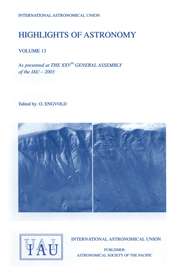Article contents
Ages of Galactic and Extragalactic Star Clusters of Various Abundances
Published online by Cambridge University Press: 30 March 2016
Extract
In this review I shall concentrate mainly on globular star clusters in our Galaxy since these are the objects for which most work has been done recently, both observationally and theoretically. However, I shall also discuss briefly the oldest open clusters and clusters in the Magellanic Clouds. Little can be said about more distant cluster systems, since the only observations available are of integrated colours or spectra and these seem to be rather unreliable indicators of age. It is perhaps worth pointing out that the title may be slightly misleading; the problem is not so much to determine the ages of clusters of known abundances, as to obtain the best simultaneous solution for both age and composition, since some of the most important abundances (notably helium and oxygen) are virtually unobservable in little-evolved low mass stars.
Information
- Type
- Joint Discussions
- Information
- Copyright
- Copyright © Reidel 1983
References
- 3
- Cited by

